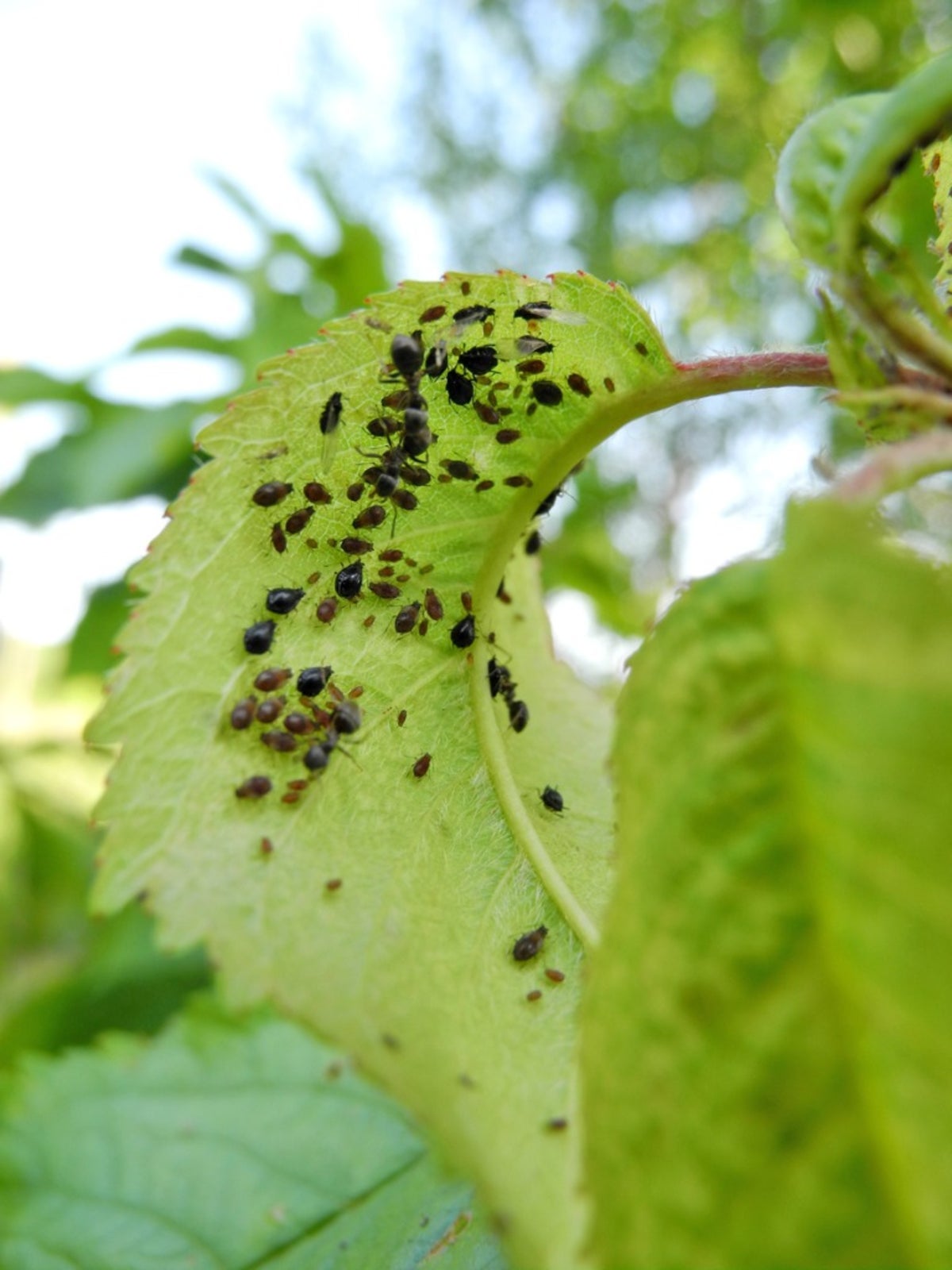What Are Black Cherry Aphids – A Guide To Managing Black Cherry Aphids


Sign up for the Gardening Know How newsletter today and receive a free copy of our e-book "How to Grow Delicious Tomatoes".
You are now subscribed
Your newsletter sign-up was successful
What are black cherry aphids? As you might suspect, black cherry aphids are a problem of cherry growers across nearly every region of the United States. While the pests will feed on any type of cherry, sweet cherries are most susceptible. Fortunately, managing black cherry aphids is possible, and damage is usually minimal if the pests are properly controlled in early spring. However, damage is sometimes severe on young trees, where even a few of the pests can create havoc. Read on for more black cherry aphid information and tips on black cherry aphid treatment.
Signs of Black Cherry Aphids
Black cherry aphids are easy to spot. They are shiny, metallic black, and at 1/8 inch (3 mm.), are quite a bit larger than most aphids. The pests emerge from eggs that overwintered in the bark, hatching as soon as buds begin to open in spring. Mature black cherry aphids may be winged or wingless. Large colonies of black cherry aphids develop quickly, with two or three generations appearing by midsummer. By this time, the pests generally move on to alternate food supplies – especially weeds and plants of the mustard family. The aphids return to the trees in autumn to mate and lay eggs. Signs of black cherry aphids include curled, distorted leaves and a large amount of sticky “honeydew” on cherries and leaves. The honeydew often attracts black sooty mold, which can render the fruit inedible.
Managing Black Cherry Aphids
The most effective way to control black cherry aphids is to protect and encourage the presence of natural predators such as lady beetles, syrphid flies, lacewing larvae, parasitic wasps, and soldier beetles. If possible, avoid broad-spectrum insecticides, which are harmful to beneficial insects, including bees. Products such as Malathion or Diazinon should be used only as a last resort in black cherry aphid treatment. Watch trees closely when buds are appearing in late winter. Yellow sticky cards placed on various parts of the tree will quickly give you a clue about the severity of a black cherry aphid infestation. Aphids are easier to manage before the leaves are curled, and you may be able to dislodge the pests with a strong stream of water. For stubborn infestations, early spring is also the best time to spray black cherry aphids with horticultural oil, a natural substance that will kill the aphids as they hatch. You can also spray affected trees with insecticidal soap, but don’t spray when temperatures are very warm, or when bees are present. Evening is the safest time to apply insecticidal soap sprays. You may need to reapply the soap two or three times to gain control.
Sign up for the Gardening Know How newsletter today and receive a free copy of our e-book "How to Grow Delicious Tomatoes".

A Credentialed Garden Writer, Mary H. Dyer was with Gardening Know How in the very beginning, publishing articles as early as 2007.